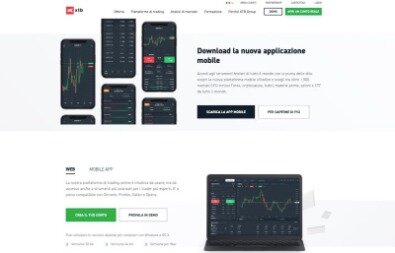
While a higher price may sound good in theory, if the price rises rapidly, it can increase the fund’s entry price, reducing future returns. Hedge funds and other institutional traders use this capital to give them more bargaining power, which they can use to help them get lower https://currency-trading.org/strategies/tradingstrategyguides-com-on-reddit-com/ execution costs, commission rebates, margin fees, etc. Institutions can complete trades at a lower cost than retail traders. Exchange traded funds (ETFs), insurance companies, mutual funds, and pension funds, are the most popular securities traded by institutional traders.

Retail traders on the other hand can adapt their play to the varying market conditions. They might get in trouble with their investors if they don’t deploy their cash. Bookmap was originally developed for a HFT trading firm that opened up their product to their world, offering highly sophisticated tools previously unseen on the retail market. We can classify traders in a variety of ways, and classifying traders by their goal in the market is considered to be one of the most straightforward ways to do that.
What is institutional trading?
In short, institutional trading is done by huge organizations on behalf of their clients. If a retail trader continues to generate positive returns and accumulate more capital from other investors, they may organize into what is essentially a small investment fund. This growth can continue, limitless, to the point where the retail trader is now an institutional trader.
It holds true that retail traders can open or close their positions at will with little to no impact on liquidity. This lifts a lot of weight off a traders’ shoulders, since they can test out ideas without having to worry about being able to close out their positions. Institutional traders typically trade blocks of 10,000 (or more) shares at a time and can save money by sending https://trading-market.org/what-kind-of-jobs-can-you-get-with-java/ trades directly to the exchanges or via an intermediary. For each transaction, they negotiate basis point fees and demand the best execution and pricing. As a result, the price and execution will be superior to that of regular traders. These books are helpful resources for those who enjoy reading and aspire to become successful institutional traders at the same time.
Institutional Investor vs. Retail Investor
With lower fees and high-quality platforms such as Bookmap that were previously proprietary and only available to hedge funds. As they grow and gain experience, retail traders find themselves becoming institutional traders; they may expand to trading for family and friends after they succeed. Retail traders are more inclined to trade small-cap stocks than institutional traders are. This is due to the fact that their price points are lower, allowing them to purchase a variety of securities in a sufficient number of shares to make a good, diversified portfolio. Headquartered in New York City, U.S. with over $9.464 trillion in AUM.

We leverage our extensive market experience to deliver an institutional experience to the developing digital asset market deriving synergies from existing a pre and post trade processes. Frankly speaking, in order to begin a career in institutional trading, there is no specific course or degree that one needs to opt for. It usually depends on how well versed you are with numbers and calculations. This website is using a security service to protect itself from online attacks. There are several actions that could trigger this block including submitting a certain word or phrase, a SQL command or malformed data.
Retail Traders Can Beat Institutional Traders
In addition, they find that at year-ends, institutions tend to buy stocks in
which they already have large positions. Position sizing involves determining the amount of money to risk on each trade based on the trader’s risk tolerance and the size of their trading account. This helps institutional traders to limit their exposure to losses and protect their capital. Though this is undoubtedly an advantage for retail traders, it relies upon the retail trader’s patience.
They then add a
control variable for total turnover in the security because it could be the cause of any
observed price inflation. Total turnover is equal to the last day’s total turnover
(i.e., shares traded/shares outstanding) as compared with the average total turnover during
the last five days of the month. The authors use Center for Research in Security Prices
(CRSP) data to calculate total turnover. To conduct their study, the authors use transaction-level institutional trading data from
Abel Noser Solutions, which collects data directly from institutional investors’
trading systems.
How much do institutional traders earn?
Mutual or investment funds pool resources from a variety of participants, both individual and institutional, to invest in a variety of assets organized into investment portfolios. The key benefit is that you can access a wider selection of assets at better prices. A corporation will be in charge of managing investment portfolios that have been pre-designed in the mutual fund contract, therefore it will not have the same level of freedom as hedge fund managers. The authors test theories of portfolio pumping and window dressing by institutions.
- This authentication occurs automatically, and it is not possible to sign out of an IP authenticated account.
- Typically the quantity of shares exchanged by retail traders is not sufficiently large to have an impact on a security’s price.
- Consider applying for entry-level jobs and then take the steps needed to rise through the ranks.
- Chat With Traders is your key to the minds of financial market trading’s elite performers.
- First, they determine
whether managers buy stocks that performed well and do not buy stocks that performed poorly
toward the end of the quarter or year. - Using different factors, investors can generate higher returns, reduce risks and increase the diversification of the portfolio.
The goal of most investment-related regulations is to protect investors. Regulations help ensure that money managers do not take advantage of the people whose money they manage. This isn’t an issue with retail traders since they’re only trading their own money. Retail traders can use leverage but at a cost higher than institutional traders.
As we’ve seen, hedge funds have big money, and with that money comes the ability to purchase the leading technology. This technology may allow hedge funds to conduct research more efficiently, complete trades more quickly, and process information faster. On the other hand, the typical retail trader often works https://forex-world.net/brokers/the-fx-swaps-client-clearing-comeback/ with no more than a laptop. Campaigns like these — which are becoming more and more common — underscore the tremendous importance of institutional investors and the influence that they can have. The experience also underscores the potential impact of shareholder proposals on corporate governance matters.
- For librarians and administrators, your personal account also provides access to institutional account management.
- Once we understand the different circumstances between the big boys and us, we should realise that the real question here is not “How do we outwit the big funds?
- Because if passive investing dominates, the majority of stocks will no longer be bought on the basis of rewarding companies that are profitable, productive, promising and well managed.
- In many situations, they have more access to brokers and the most up-to-date information.
- An investment mandate typically describes the acceptable risk parameters and the investment strategy that the manager must implement.
- It offers products and services to corporations, governments, banks, brokers, insurance companies.
Each book gives you an informative insight into the concepts that are integral for the financial market traders and hence, institutional traders can also benefit from the same to apply the methods for their clientele. First of all, let us take a look at the examples of firms that trade on the behalf of their clients. Such firms that assist their clients with investment services are known as institutional trading firms.
As you well know, disclosure is the foundation of our federal securities laws. Fair and accurate disclosure has been the central goal of U.S. securities laws for 80 years.12 This goal is so fundamental to our understanding of securities regulation that the benefits of transparency might almost be taken for granted. For full access to this pdf, sign in to an existing account, or purchase an annual subscription.
With 81% ownership, Oxford Metrics plc (LON:OMG) boasts of strong institutional backing – Yahoo Finance
With 81% ownership, Oxford Metrics plc (LON:OMG) boasts of strong institutional backing.
Posted: Mon, 17 Jul 2023 09:01:13 GMT [source]
See, Exchange Act §14A(d), which was added by §951 of the Dodd-Frank Act. This effort to shine a light on how investment managers vote recognizes that the institutions managed by such investment managers are using other people’s money. In accordance with the Congressional mandate, the Commission proposed a rule to facilitate investment manager reporting of say-on-pay votes. However, although this proposal was approved 2½ years ago, the Commission has yet to adopt such rule. Given the importance that Congress has placed on “say-on-pay,” this delay is unacceptable.

Comments are closed.